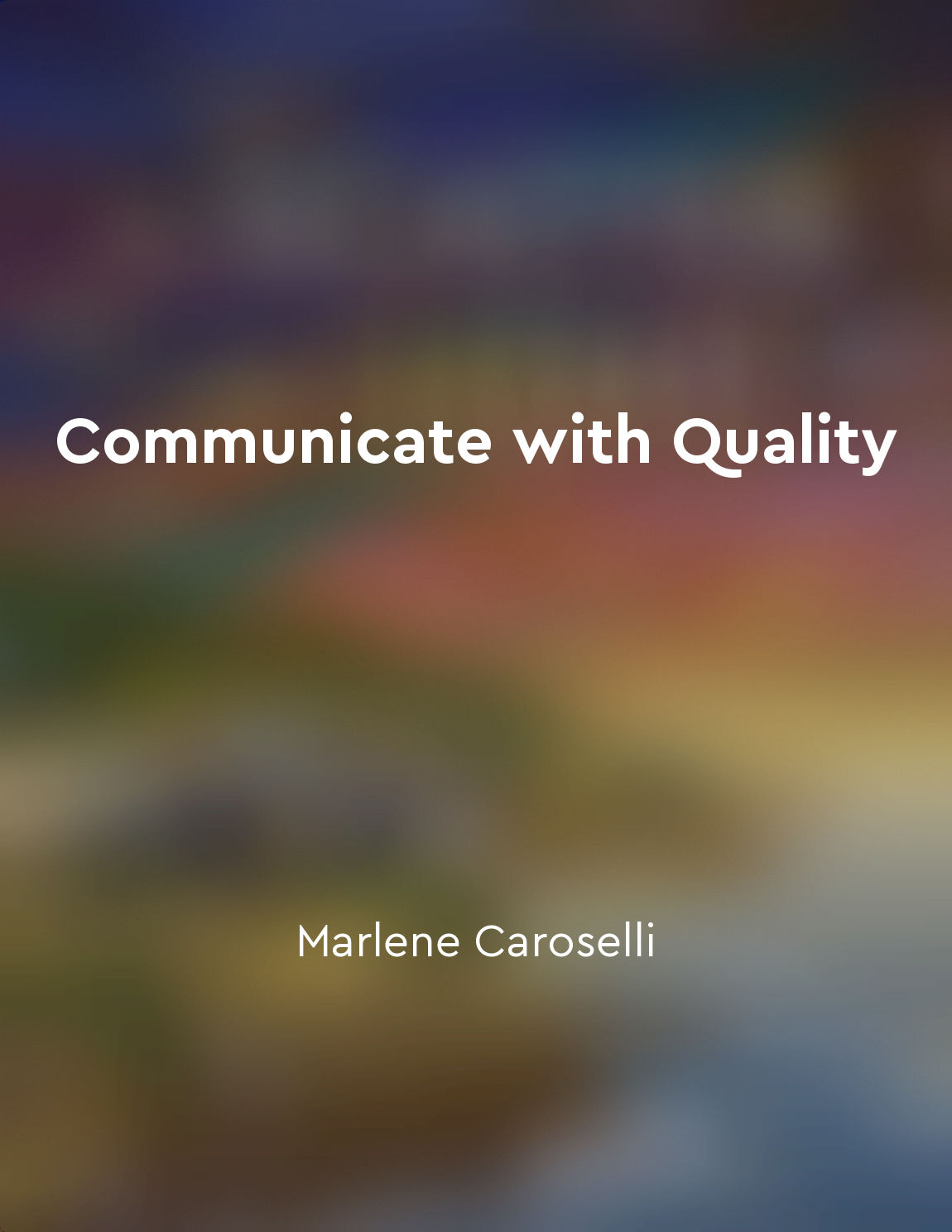Audio available in app
Nonverbal cues can often reveal more than words themselves from "summary" of The Wisdom of Listening by Mark Brady
Nonverbal cues play a crucial role in communication, often revealing more than words themselves. These cues can provide valuable insights into a person's emotions, intentions, and thoughts, which may not be expressed verbally. When we pay attention to nonverbal cues such as body language, facial expressions, tone of voice, and gestures, we can gain a deeper understanding of what someone is truly trying to convey. For example, a person may say that they are feeling fine, but their slumped posture and downcast eyes may indicate otherwise. By being attuned to these nonverbal signals, we can pick up on hidden emotions and hidden meanings that may not be evident in the spoken word alone. This allows us to connect more deeply with others and respond in a more empathetic and understanding manner. Nonverbal cues can also help us to navigate complex social situations and understand the dynamics at play. For instance, a person's tone of voice and facial expressions can reveal their true feelings about a particular topic, even if their words suggest otherwise. By being aware of these nonverbal cues, we can avoid misunderstandings and miscommunications, leading to more effective and meaningful interactions. In addition, nonverbal cues can serve as a mirror, reflecting our own emotions and thoughts back to us. When we observe our own body language and gestures, we can gain insight into our own inner state and become more aware of our own feelings and intentions. This self-awareness can help us to communicate more authentically and build stronger connections with others.- Nonverbal cues are a powerful tool in communication, allowing us to access a deeper level of understanding and connection with others. By paying attention to these cues, we can enrich our interactions, navigate social situations more effectively, and gain insight into our own inner world.
Similar Posts

Honing your communication skills takes practice and patience
Improving your communication skills requires dedication and time. It is not something that happens overnight; rather, it is a g...
Eye contact is crucial for building rapport
Establishing eye contact is an essential component of building rapport with others. When you make eye contact with someone, you...
Men excel at spatial awareness tasks
Men are generally better at tasks that involve spatial awareness compared to women. This is because men's brains are more speci...
Building trust is essential for successful relationships
Trust is the foundation of any successful relationship. It's the glue that holds everything together. Without trust, relationsh...

Personalizing your approach can increase the effectiveness of persuasion
When it comes to persuading others, one of the most important factors to consider is personalization. By tailoring your approac...
Tone of voice conveys emotion
The way we speak says a lot about how we feel. Our tone of voice can reveal our emotions more than the words we choose. It is n...
Validate the speaker's feelings and experiences
Validating the speaker's feelings and experiences is a crucial aspect of active listening. When we validate someone's feelings,...
Fake smiles can be distinguished from genuine smiles by observing the eyes
One way to differentiate between fake smiles and genuine smiles is by paying attention to the eyes. Genuine smiles involve not ...
Communication is a twoway street
Communication is not just about speaking and being heard; it is about listening and understanding. It is a dynamic process that...
Avoid making assumptions
The danger of assuming is that it can lead you down the wrong path. When you assume, you are essentially making a guess without...

